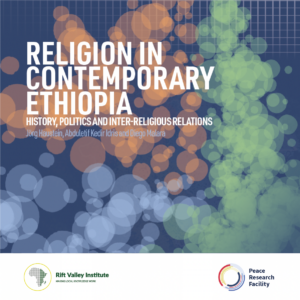HISTORY, POLITICS AND INTER-RELIGIOUS RELATIONS
INTRODUCTION
Religious affiliation is almost universal in Ethiopia, which means that religions amass significant political capital but may also act as potential catalysts for conflict. After five decades of ostensibly secular politics—first under a socialist dictatorship and then driven by the Ethiopian People’s Revolutionary Democratic Front (EPRDF)’s strict insistence that religion and state be separated—religion has made a political comeback under Prime Minister Abiy Ahmed. Religion is once again part of political discourse, whether it be in defining political constituencies, demarcating differences, or articulating visions of Ethiopian unity.
This, however, increases political complexity, as religious affiliation in Ethiopia is part of a multi-layered nexus incorporating ethnicity and other, secondary, social characteristics, such as occupation or class. This often makes religious politics difficult to decipher, especially when it comes to anticipating, preventing and resolving conflict. For a long time, an increasingly contested narrative of peaceful coexistence has obscured simmering tensions. When these flare up, typically in localized clashes, they quickly assume national importance, for example in generating new dialogue initiatives or anticipating conflict in other locations.
This review offers a comprehensive introduction to this landscape, drawing on the most relevant academic publications on religion in Ethiopia. Section 1 provides an overview of the politics of religion since the making of the modern Ethiopian nation state in the nineteenth century. Section 2 then surveys the four most important faith groups in contemporary Ethiopia (Orthodox Christianity, Islam, Protestantism/Pentecostalism, and so-called ‘traditional religions’), with a particular focus on how current political debates have led to tensions and divergences within these groups. Section 3 explores inter-religious relations, before the review closes with some suggested avenues for future research.
This literature review was written for the Ethiopia Peace Research Facility (PRF). The PRF is an independent facility combining timely analysis on peace and conflict from Ethiopian experts with support for conflict sensitive programming in the country. It is managed by the Rift Valley Institute and funded by the UK government.




